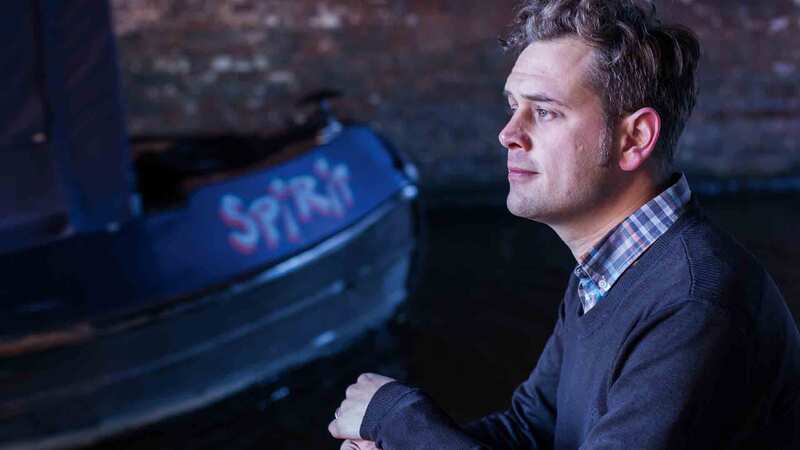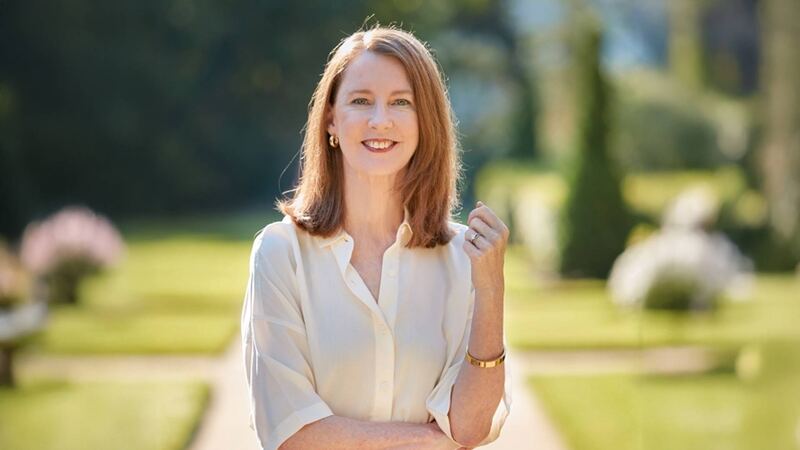You are viewing your 1 free article this month. Login to read more articles.
Children of Terrorism
Writing a novel about the effects of 9/11 on a British boy and his family was, in hindsight, a pretty ambitious undertaking. But along the way I met and interviewed some incredible people, and it was their stories which inspired me and their voices which resonated throughout the novel I eventually sat down to write.
We Can be Heroes all started with an article I wrote for The Times in September 2008 about children who lost a parent in the September 11 terrorist attacks. I included interviews with four American teenagers, all of whom had lost their mum or dad on 9/11. “After 9/11, I used to hate everybody around me. And I was just so - mad,” recalled Erik, who was just 11 when his father, a World Trade Centre worker, died in the terrorist attacks. “It’s only this year that I've started to really come to grips with what went on and how I was affected by it.” Erik, Brielle, Bridget and Amy talked about answer phone messages, not being able to remember a parent’s face properly any more, anger at the media, ‘9/11 fatigue’ and learning to heal through helping the victims of Hurricane Katrina.
I also interviewed a British boy, Martin, whose father had been one of the victims of the 7/7 London terrorist attacks. Martin’s experience was so different to that of the US 9/11 kids. He had never met another child whose life had been affected by terrorism and his response to the events – and the response he had encountered from others – was characterised by a very British restraint which contrasted sharply with the outpourings of grief and patriotism on the other side of the Atlantic. “As a boy you are expected to be manly and crying is not a manly thing to do,” he told me. “I cried a bit at my dad’s funeral but otherwise I’ve kept my feelings to myself.” Talking to those kids sewed the seeds for the novel that started out as The 9/11 Boy and eventually became We Can be Heroes.
We Can be Heroes tells the story of 12-year-old Ben, a British boy whose father died in the 9/11 attacks when he was just three years old. Ben meets ten-year-old Priti, a Muslim girl who is convinced her brother is a suicide bomber. The pair decide to turn detective to try and foil the bomb plot with hilarious - and explosive - consequences.
I decided to write about a boy who had lost his father at a very young age because my own children were still little and Ben is based partially on my own little boy. I interviewed Terry Sears from the organisation Tuesday’s Children, who support the 9/11 kids across the US, and she talked to me about the younger children, many of whom were only recently able to understand what had actually happened. “This year, some kids were able to express things for the first time,” she told me.
Much later, when I’d almost finished the novel in fact, I talked to Elizabeth Turner, a British 9/11 widow who had been pregnant with her son William when her husband was killed in the twin towers. Her amazing autobiography The Blue Skies of Autumn is harrowing, beautiful and jaw-droppingly inspirational. I spoke to her about bringing up her son William in the shadow of the Twin Towers tragedy.
“William has been exposed to some very adult things at a very young age,” Elizabeth told me, explaining how 9/11 defined them both but in very different ways. “William never met his father and he has a huge number of questions about him: 'What was daddy’s favourite colour?' he asked me the other day, and I realised I couldn’t remember. 'I think it was green,' [William] said. And, do you know, I think it was.”
It was probably a good thing that I didn’t meet Elizabeth and William until I’d virtually finished We Can be Heroes. The events of their life so closely mirror those I had imagined, and the realisation that there was a real little boy out there just like Ben really made me question whether any novelist even had the right to fictionalise the events that had shaped his life. What, after all, made me think I could possibly do justice to his tragedy? I’m still not sure I have the answers to those questions.
Elizabeth talked to me about moving on, about falling in love again and the questions that it has thrown up for William. “Won’t daddy be cross that you’ve met someone else?” William had asked her recently. “My friend says you can’t until you are divorced. Are you and Daddy divorced?”
It is Ben’s mum finding new love that provides the catalyst for the events in We Can be Heroes and Terry Sears of Tuesday’s Children talked to me about the challenges the 9/11 kids faced when surviving parents moved on, remarried and formed step families. “In some cases grief has driven families apart,” Terry explained, “and rifts with the deceased parents’ relatives have left some 9/11 kids estranged from their grandparents.”
This lead me to interview Patricia Bingley, a grandmother who had not been allowed to speak to her grandchildren since the day her son died in the twin towers. “The boys are 15 now,” she told me. “I wrote them a card recently. I said, ‘I will always love you till the day I die. Your mother tells me you want nothing to do with me but if you are anything like your father I know one day you will get in touch with me. Until then, know that if you ever want me, or need me, I am here for you’.”
It was Patricia who inspired me to write a novel with grandparents at its heart and a story which explores the way a family fractures after losing a loved one in the terrorist attacks. Lots of other things inspired We Can be Heroes: silly stuff like my daughter’s obsession with wheelie shoes; the boys doodling manga in the back of my lessons; Son of Rambow; and the Alex Ryder books. Not to mention the Muhammed family of Elm Grove who taught me during a power cut that Islam is an act of love and proved it when they invited all the neighbours (even the crack-den-ladies-of-the-night, the stoned squatters and the tramp who slept in Holly Grove park) to their street party wedding, as well as the people I interviewed for articles about grandparents, childhood bereavement and mothers who live apart from their kids.
But primarily I wrote We Can be Heroes for Erik, and Brielle and Bridget and Amy, for Martin, William, Elizabeth, Patricia and all the other families affected by terrorism across the world. No novel can hope to do justice to the totality of their collective experience, but I hope We Can be Heroes captures some of their resilience, their insight and, most surprising and inspiring of all, their sense of hope.
“I still really struggle to forgive the people who killed my dad,” said 15-year-old Martin. “But those of us who have suffered at the hands of terrorists can play a really important role in shaping the future of the world and helping to overcome terrorism. We have to be better than the terrorists – it’s as simple as that.”
We Can Be Heroes by Catherine Bruton is out now, published by Egmont, £6.99.














